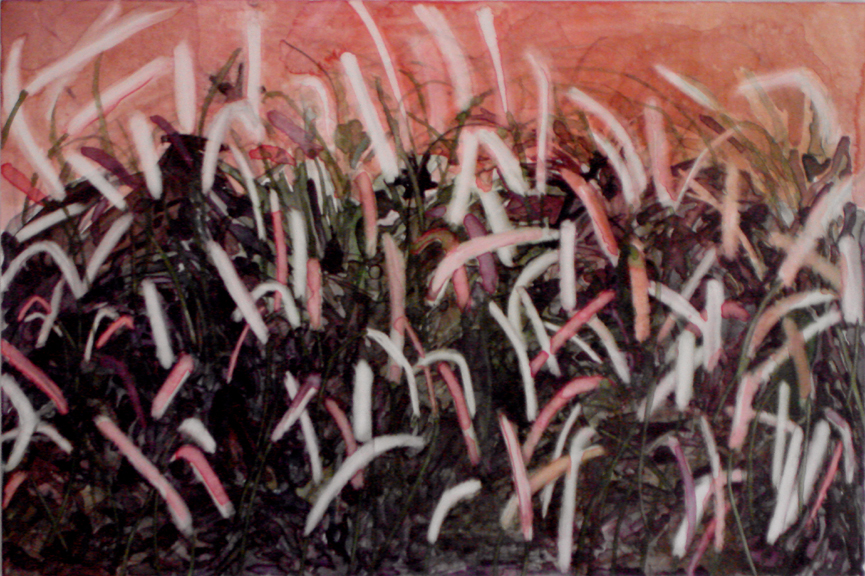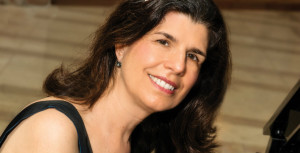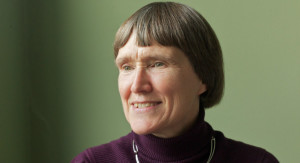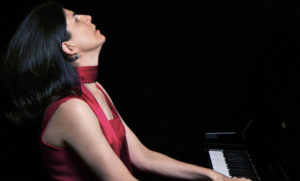The shape of Thomas Maitin’s face is almost perfectly round, his complexion clean for someone in his late 50s, the clarity of his bearing hinting at the purity in his music. Thomas and I meet at the dining room of a New York club, and I ask for a table in the corner. Since his hearing loss is far worse than mine—he is profoundly deaf in one ear and wears a hearing aid in the other—I am on edge about how this dinner will go.
Thomas places his iPhone next to my plate on the table. In addition to being a composer, he is a gadget-genius. He has rigged his iPhone to serve as a receiver that connects to his hearing aid.
He tells me about his current work: an étude for the piano, a cello concerto for a well-known soloist. I describe my weekly piano lesson, the Bach Invention in C I am studying. At first I lean my head down towards the iPhone, as though I am speaking into a microphone, until I relax. Thomas speaks loudly, perhaps unaware of the volume of his own voice. I determinedly ignore a few surprised head-jerks from nearby diners. I will not cast embarrassed looks at the other patrons, the way people sometimes do with me. Thomas and I have the right to speak as loudly as we wish.
“I listened to your music on your website,” he tells me. “It was good.”
My amateur recordings of Chopin and Debussy piano music are far from perfect, but I posted them on my website with no compunction, perhaps because when it comes to the piano, my hearing loss is a bond with an uncertain call date. Yet at the thought of Thomas, an internationally renowned composer listening to my recordings, I block my face with my hand, sprawled open. I laugh. I am acting immaturely, but I cannot seem to stop myself. “I know I’m going to get better,” I tell him. “But I decided to put them up there because there’s no time like the present.”
“Good for you,” he says. He tells me that several weeks before, a virus caused his good ear, the one with the hearing aid, to become clogged. “I couldn’t hear anything for 24 hours,” he says. “I thought I was going to lose it.”
With the black-tailed waiters bustling past, I try to imagine the cessation of all sound, a complete lack of noise, peppered by grunts and static from my faulty ears. In that period of my life before I joined the board of the Hearing Health Foundation and met Thomas at one of the receptions, a period when I denied my hearing loss to others and even myself, I conceived of deafness as a total absence of sound. The quiet might be eerie, but perhaps welcome during those times of writing, not dissimilar to the calm that descends upon my entire being when I am deep in concentration.
The facts set me straight. Hearing loss is noisy, staticky, the bleating alarms of tinnitus, the crackling discharge from an abandoned auditory nerve. Hearing loss is a scrim blocking desired sounds—my daughter’s treble singsong, my son’s droll, bass-toned wit, my husband’s agreeable baritone, the piano’s chimes and rumbles. I try to imagine being imprisoned by the sounds of deafness. The entire dining room heaves downward an inch, while air seems to be blocked from entering my throat. I dig my fingertips into the white tablecloth. I am supposed to be expressing empathy. “That sounds horrible,” I say. No, wrong reply. “I’m so sorry you had to go through that.”
Thomas shakes his head. “Thank you. It was awful.”
After dinner, Thomas and I walk together to the subway. It is September, a warm night, with a residue of summer tourists still thronging Times Square. We talk about Debussy and Wagner operas. We wave goodbye to the clanging of the number 2 train. My friendship with Thomas offers a communion, a validating conversation with another musician with hearing loss, and at the same time a prophecy, a visible, breathing reminder of the person I might become.





Such inspiration.bi await a cochlear implant being activated. I still play the piano, but it sounds so out if tune. I know its not so persevere for my own pleasure. I was an oboist. I now teach the piano with great difficulty. Beginners are fun, tunes are simple, grades increase, harmonies increase, my task get harder. I hope things improve eventually with my CI, just the one in the UK & will still wear my other hearing aid. My audi’s advise was to remove my hearing aids and play loud. I will take your article in the Pianist to her. I didn’t know such things were possible with hearing aids. Thank you for sharing your story with them. Elaine, in anticipation if things to come.